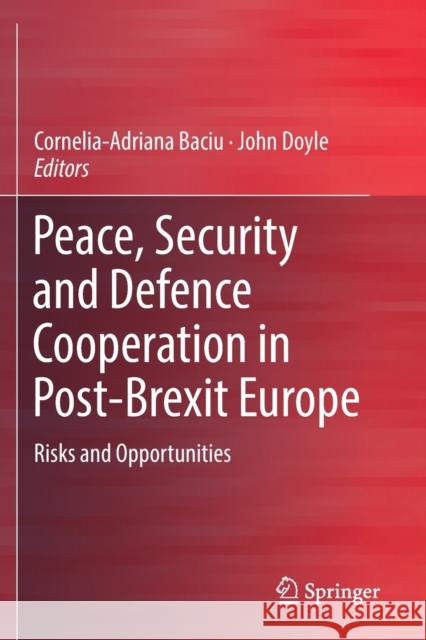Peace, Security and Defence Cooperation in Post-Brexit Europe: Risks and Opportunities » książka
topmenu
Peace, Security and Defence Cooperation in Post-Brexit Europe: Risks and Opportunities
ISBN-13: 9783030124205 / Angielski / Miękka / 2020 / 244 str.
Peace, Security and Defence Cooperation in Post-Brexit Europe: Risks and Opportunities
ISBN-13: 9783030124205 / Angielski / Miękka / 2020 / 244 str.
cena 523,30
(netto: 498,38 VAT: 5%)
Najniższa cena z 30 dni: 501,19
(netto: 498,38 VAT: 5%)
Najniższa cena z 30 dni: 501,19
Termin realizacji zamówienia:
ok. 22 dni roboczych.
ok. 22 dni roboczych.
Darmowa dostawa!
Kategorie BISAC:
Wydawca:
Springer
Język:
Angielski
ISBN-13:
9783030124205
Rok wydania:
2020
Wydanie:
2019
Ilość stron:
244
Waga:
0.36 kg
Wymiary:
23.39 x 15.6 x 1.37
Oprawa:
Miękka
Wolumenów:
01
Dodatkowe informacje:
Wydanie ilustrowane











